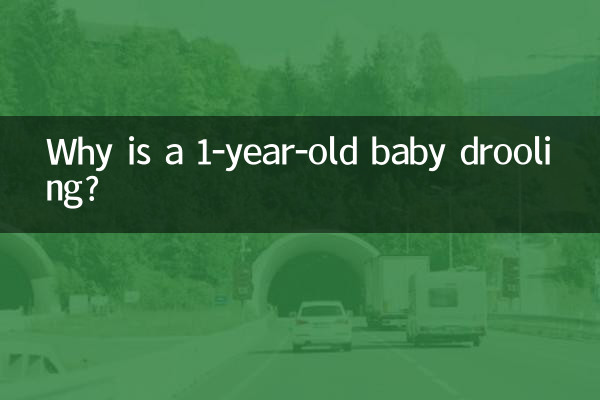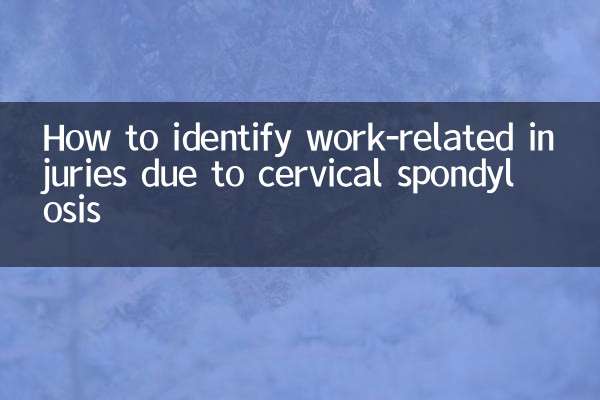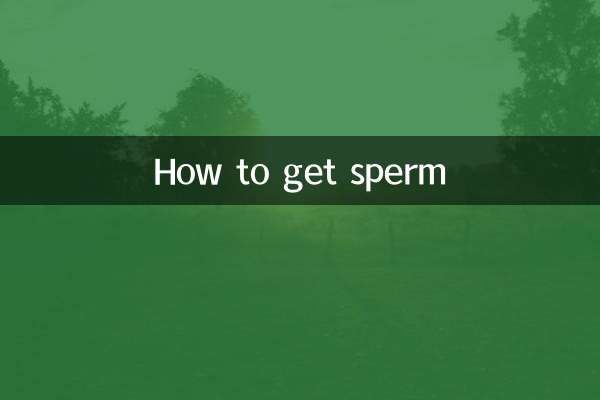Why is a 1-year-old baby drooling?
Drooling in babies around 1 year old is a common question among many parents. While this is normal in most cases, understanding the reasons and considerations behind it is important in parenting. This article will combine the hot parenting topics and medical advice on the Internet in the past 10 days to provide you with a detailed analysis of the possible causes of baby drooling, how to deal with it, and the situations that require vigilance.
1. Common causes of drooling in babies

| Reason type | Specific instructions | occurrence stage |
|---|---|---|
| physiological development | Salivary glands are well developed but swallowing function is immature | 3-18 months |
| teething period | Teeth eruption stimulates saliva secretion | Starting from 4-7 months |
| oral exploration | Behaviors such as eating hands and biting toys stimulate saliva secretion | 6 months later |
| Food stimulus | Acidic foods increase salivation after adding complementary foods | 6 months later |
2. Related discussions in recent parenting hot topics
According to statistics on parenting topics in the past 10 days, problems with babies drooling mainly focus on the following aspects:
| Discussion hot spots | Attention | Main point |
|---|---|---|
| Drool Rash Care | high | It is recommended to use pure cotton saliva wipes and wipe them in time to keep them dry. |
| Abnormal drooling | middle | Sudden drooling may indicate illness |
| Swallowing training | high | Appropriate addition of solid food to train swallowing ability |
| Teething stage performance | middle | Drooling accompanied by red and swollen gums requires special attention |
3. Pathological drooling that requires vigilance
While most drooling is normal, the following situations require prompt medical attention:
| abnormal behavior | Possible reasons | accompanying symptoms |
|---|---|---|
| sudden drooling | Oral ulcers/herpes | Refusing to eat, crying |
| Persistent drooling over 2 years of age | Nervous system development problems | Speech-motor development delay |
| accompanied by fever | Hand, foot and mouth disease | Rash on hands and feet |
| difficulty breathing | throat infection | hoarse voice |
4. Daily care suggestions
1.Keep it clean and dry:Use soft and absorbent cotton saliva wipes and wipe them in time. Avoid using rough paper towels.
2.Prevent drool rash:You can apply baby-specific moisturizer to areas such as your chin to create a protective barrier.
3.Proper training for swallowing:As the baby gets older, you can gradually add foods that need to be chewed to exercise the oral muscles.
4.Choose the right teether:During the teething period, we can provide safe and hygienic teethers to relieve gum discomfort.
5.Pay attention to the changes:Record the frequency and amount of drooling, and consult a doctor promptly if any abnormalities are found.
5. Latest suggestions from experts
According to recent interviews with pediatric experts, special emphasis is placed on the problem of drooling in 1-year-old babies:
• There is no need to overly interfere with normal physiological drooling, which is a necessary stage of baby development.
• Continued profuse drooling after 2 years of age requires developmental evaluation
• When adding complementary foods, gradually transition from thin to thick to help practice swallowing function
• Avoid using alcohol-based cleaning products around your baby’s mouth
• Special attention should be paid to keeping the perioral area dry in summer to prevent fungal infection
Conclusion:
Drooling in 1-year-old babies is mostly a normal physiological phenomenon, and parents do not need to worry too much. By understanding recent parenting hot topics and medical advice, we can deal with this problem more scientifically. The key is to distinguish between normal and abnormal conditions, provide daily care, and at the same time give your baby enough time and space to grow. If abnormal symptoms occur or last for a long time, it is recommended to consult a professional pediatrician in time.

check the details

check the details